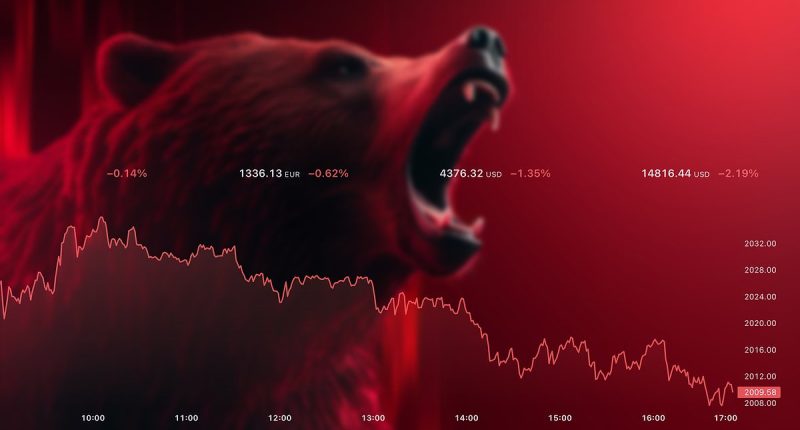Share this @internewscast.com
It is time to reflect, and the long weekend gives us a chance to do so. We all need respite from the chaos, for this is not, from an economic or financial perspective, a joyful Eastertide at all.
So let’s step back and focus on the things we know, or at least can reasonably expect, to happen in the weeks ahead. Here are six.
The first thing to say is that the chaos will not continue for ever. It can’t. The costs for everyone are too high. So there will be a series of settlements of the trade disputes triggered by Donald Trump in the coming weeks.
These may not be very satisfactory and may not stick. But this level of uncertainty will not continue beyond the summer.
The second thing is that the global business community is hugely resilient. We saw that in the way Russian enterprises have got round the sanctions imposed on them by the US, Europe and their allies. Russia has carried on exporting its goods and raw materials, and importing what it needs. The disruption has increased costs and prices, but it has not stopped trade.

Bear market: The sharp fall in US equity prices affect us in the UK directly and indirectly
Third, there will be more inflation worldwide. This is partly because tariffs increase prices, but also because the political mood in the US is leaning in favour of inflation.
The President has attacked Jerome Powell, head of the Federal Reserve, for not cutting interest rates fast enough, and we know what happens if money is too cheap.
The time lags are uncertain, but if central banks print cart-loads of money, then eventually that ends in higher prices. If the US has a rebound in inflation, that pressure will head across the Atlantic and hit us too. In any case, we are perfectly capable of generating our own inflation, and the Bank of England expects the Consumer Prices Index to be rising well above 3 per cent by the autumn.
Next, we know a lot about bear markets, defined as a fall of 20 per cent or more from the peak.
The sharp fall in US equity prices affect us in the UK directly and indirectly. Directly because many of us hold American stocks, and indirectly because markets here have been pulled down too.
Of course, all bear markets are different. That is the nature of the beast. But looking at the past 100 years in the US, on average they have lasted nine months, with a decline of 35 per cent.
That leads to two conclusions. If what is happening in the US is more or less typical, there will be further falls in equity prices, but by the end of this year we should be looking for a recovery.
How might that affect UK markets? Well, we have seen how what has been happening in America has wrecked what was a promising mini-boom in the FTSE 100 index, which peaked at just over 8,900 in inter-day trading last month. We’re back to where we were at the start of the year.
So while UK shares offer much better value than US ones, if there are further sharp falls in the US, it would be naive not to expect us to be clobbered too.
Five, does all this mean the UK goes into a serious economic slowdown, maybe a recession? The forecasts for the US are ambivalent, with some economists predicting recession, others merely slower growth.
As far as we are concerned, the consensus seems to be one of stagnation rather than outright decline, with the impact of the Chancellor’s tax increases on business more important than the shenanigans across the Atlantic.
And it seems service economies are more resilient to economic shocks than manufacturing- driven ones. The UK relies more on services than any other major economy. And not just domestic services – they accounted for 56 per cent of exports in 2023. I can’t find any other country where the proportion is so high.
A final thought. There is always the possibility of something happening at the edges of our experience of the past half-century. This year may lead to an economic rupture akin to that of the 2008-9 banking crash or the pandemic. But it is equally likely this is a mid-cycle pause.
Common sense will prevail, and growth and trade will pick themselves up, dust themselves down – and get back to business next year.
DIY INVESTING PLATFORMS
AJ Bell

AJ Bell
Easy investing and ready-made portfolios
Hargreaves Lansdown

Hargreaves Lansdown
Free fund dealing and investment ideas
interactive investor

interactive investor
Flat-fee investing from £4.99 per month
Saxo

Saxo
Get £200 back in trading fees
Trading 212
Trading 212
Free dealing and no account fee
Affiliate links: If you take out a product This is Money may earn a commission. These deals are chosen by our editorial team, as we think they are worth highlighting. This does not affect our editorial independence.
Compare the best investing account for you





